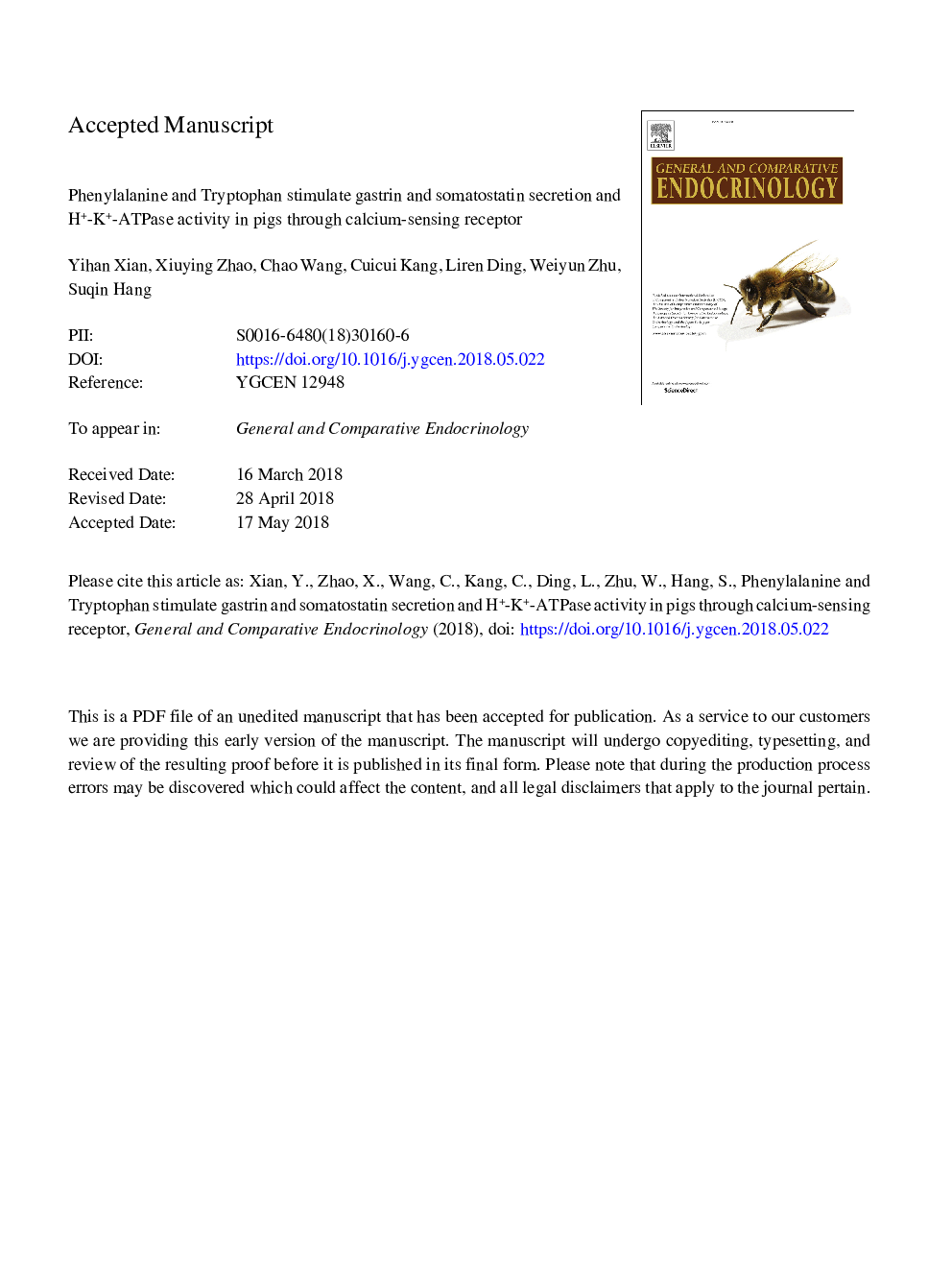| Article ID | Journal | Published Year | Pages | File Type |
|---|---|---|---|---|
| 8950931 | General and Comparative Endocrinology | 2018 | 34 Pages |
Abstract
In rodents and humans, aromatic amino acids increase gut hormone secretion and H+-K+-ATPase activity by modulating calcium-sensing receptor (CaSR). However, the role of CaSR and its related signaling molecules in amino acid-induced gut hormone secretion in swine has not been investigated. Here, we examined whether a CaSR-dependent pathway modulated gastrin and somatostatin (SS) secretion and H+-K+-ATPase activity in pigs. Perfusion of pig stomach tissues in the presence of extracellular 80â¯mM l-phenylalanine (Phe) or 20â¯mM l-tryptophan (Trp) and a CaSR agonist cinacalcet triggered gastrin and SS secretion and H+-K+-ATPase activity (Pâ¯<â¯0.05) and increased CaSR expression (Pâ¯<â¯0.05). This effect of Phe and Trp was dependent on Ca2+ (Pâ¯<â¯0.05) and was abolished after treatment with NPS 2143, an inhibitor of CaSR, and 2-aminoethyl diphenyl borinate, an inhibitor of CaSR downstream signaling molecule inositol 1,4,5-triphosphate receptor (IP3R). These findings indicate that Phe and Trp induce Ca2+-dependent gastrin and SS secretion and H+-K+-ATPase activity through CaSR and its downstream signaling molecule IP3R.
Related Topics
Life Sciences
Biochemistry, Genetics and Molecular Biology
Endocrinology
Authors
Yihan Xian, Xiuying Zhao, Chao Wang, Cuicui Kang, Liren Ding, Weiyun Zhu, Suqin Hang,
